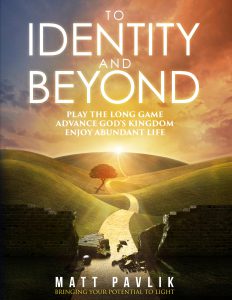Reading time: 2 minutes
When life is a struggle, sometimes we wrestle with ourselves, sometimes with our circumstances, and sometimes we wrestle with God.
I wonder what challenge your facing that is causing you to want to realize your identity. Whatever the challenge is, I suggest you face it head-on. As you wrestle with it, you’ll learn more about who you are. Jacob wrestled with God and God ended up changing his name.
And Jacob was left alone. And a man wrestled with him until the breaking of the day. When the man saw that he did not prevail against Jacob, he touched his hip socket, and Jacob’s hip was put out of joint as he wrestled with him. Then he said, “Let me go, for the day has broken.” But Jacob said, “I will not let you go unless you bless me.” And he said to him, “What is your name?” And he said, “Jacob.” Then he said, “Your name shall no longer be called Jacob, but Israel, for you have striven with God and with men, and have prevailed.” Then Jacob asked him, “Please tell me your name.” But he said, “Why is it that you ask my name?” And there he blessed him.
—Genesis 32:24-29
To understand your identity, you should also consider your worldview. What is your relationship to everything else besides you? Look at where you fit in comparison to everything else.
Considering your likes and dislikes is good. Considering what others see is also good. But there’s more. What brings deep satisfaction and meaning to you?
To realize your identity, enter into the following cycle:
- Define yourself as best as you can. Who are you?
- Live life. Experiment. Try something new.
- Define your worldview. Where are you?
- Define your purpose. Why are you here?
- Define your goals. What do you want to accomplish next?
- Focus on what is most meaningful to you for a while.
- Return to step 1 and repeat.






